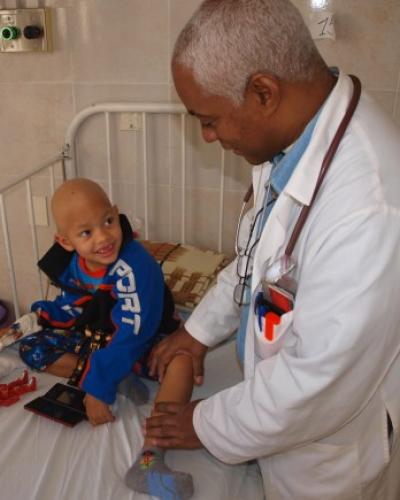Havana, April 15 (RHC) – In Cuba, nearly 1,000 diabetic children under the age of 15 have seen their quality of life improve through health-oriented educational and recreational programs.
Working with diabetic young people and adolescents is part of a program aimed at finding ways to improve their quality of life by educating the children and their families, at times when over 371 million people suffer from diabetes in the world.
Doctor Manuel Vera, from the National Diabetes Center, said the results of the program help lowering the number of hospitalizations. “We educate the children about their diet, the administration of insulin, how to monitor their condition, to identify their limitations and face obstacles with higher quality of life.”
The program is based on a one-week hospitalization period both for the children and their parents, for check-ups, and general attention. Some 19 specialized centers are implementing the program in Cuba at this time.
Diabetes is a major challenge to health given its increasing prevalence in the world. According to the International Diabetes Association, some 500 million people could be suffering from the disease by 2030. Diabetes can cause blindness, heart attacks, kidney malfunction, amputations and many other harmful effects.


